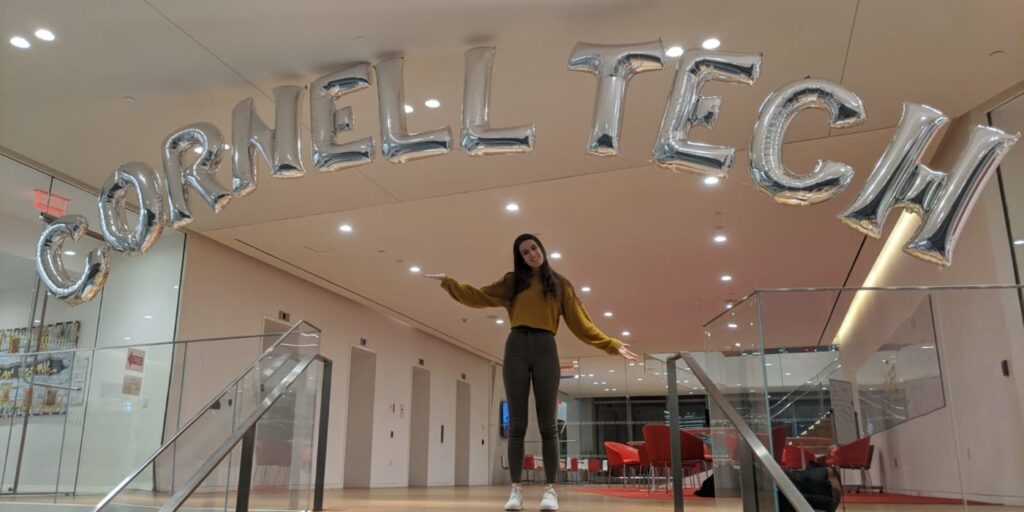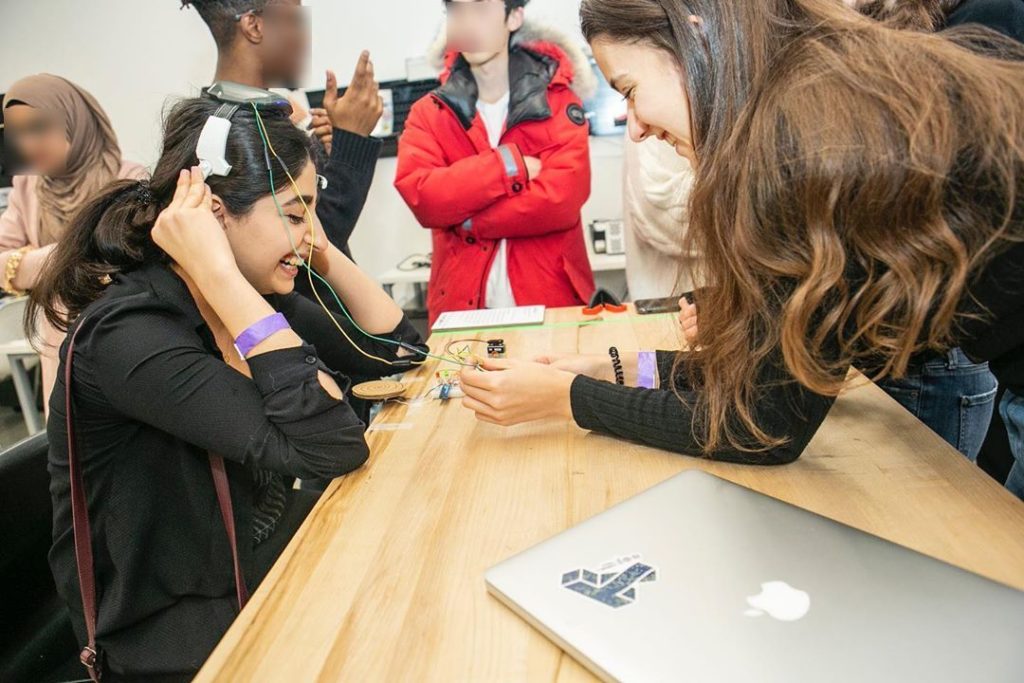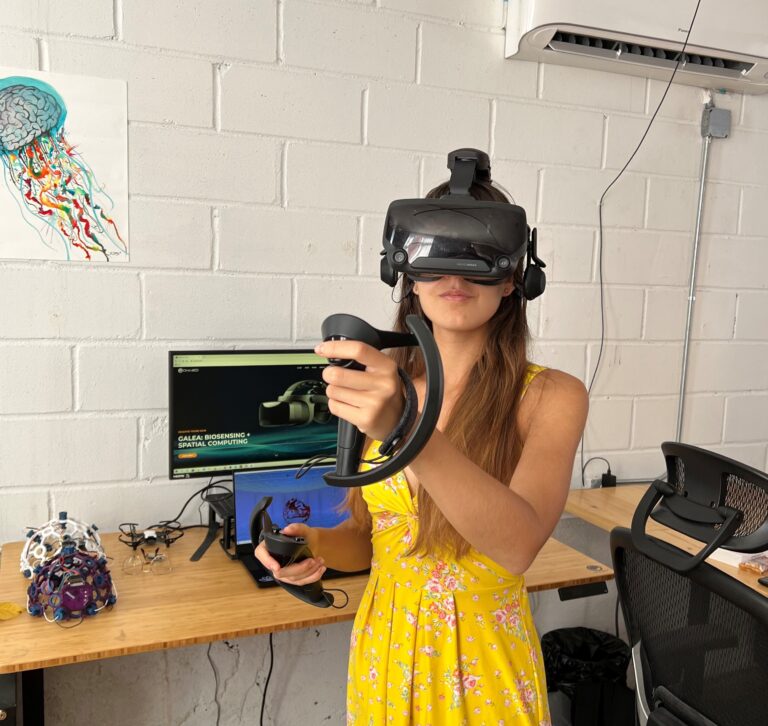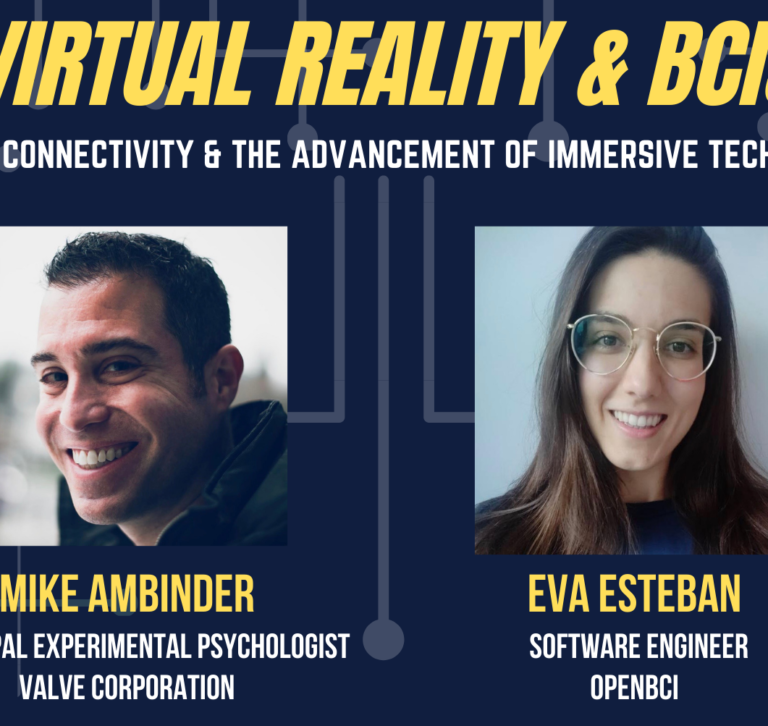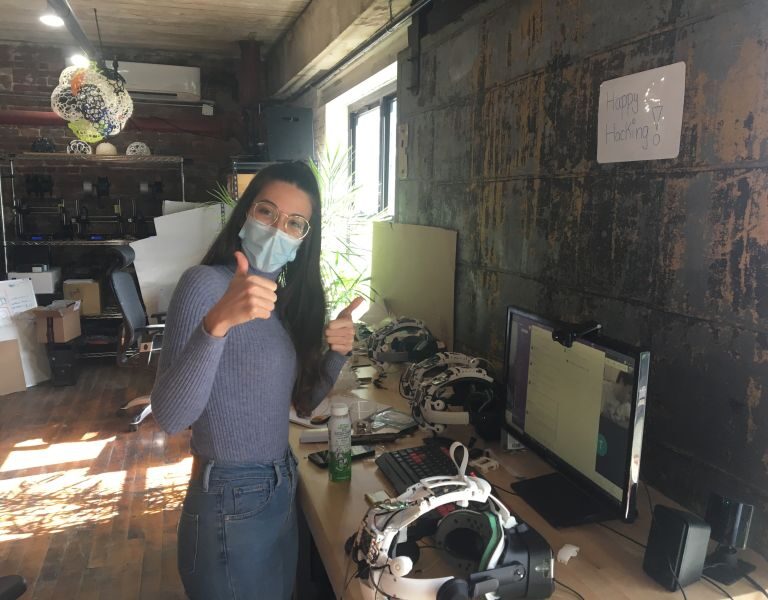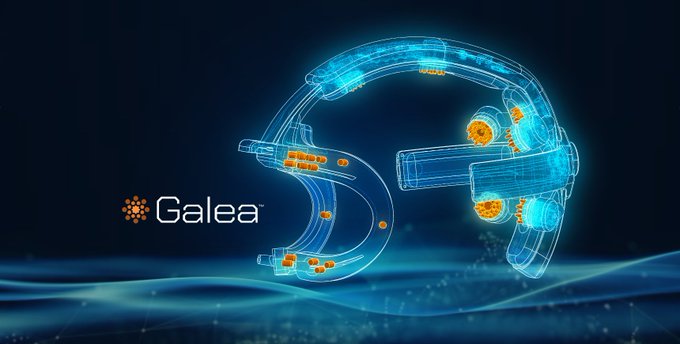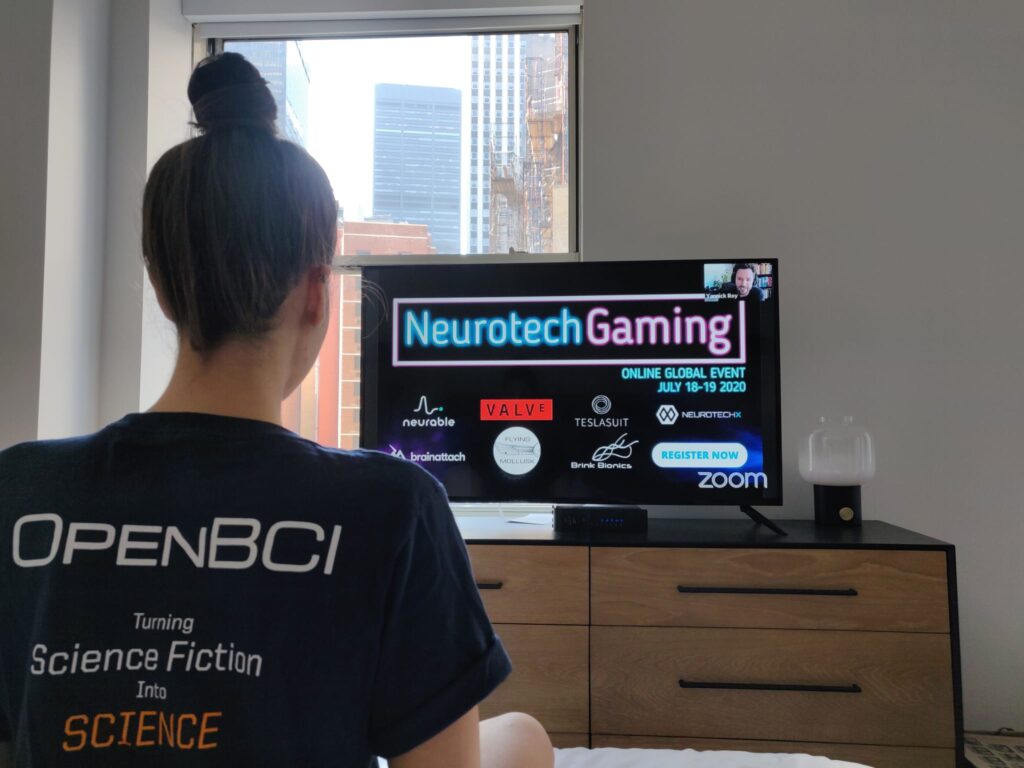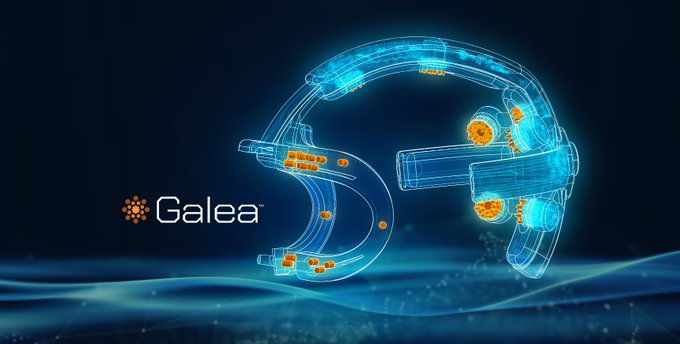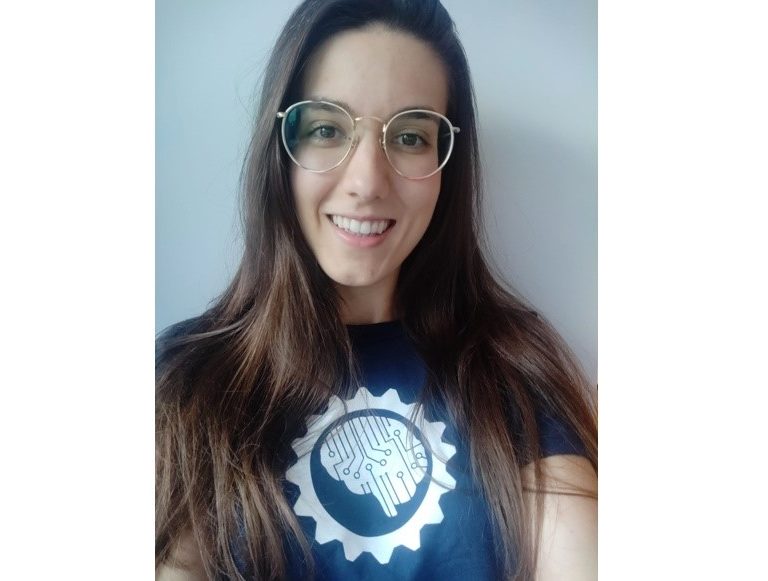Two Years at OpenBCI!
Two years ago I dipped my toes into brain-computer interface (BCI) technology by hacking a $30 Star Wars toy to read EEG data and make a cardboard wheel spin by concentrating on it. My team and I first showcased the prototype at the 2019 Cornell Tech Open Studio event. Although I understood the science behind it, putting the device on users’ heads and watching the wheel spin felt like magic!
Fast forward to today and my code is running on Galea, a $25K high-end platform that merges next-generation BCI systems with head-mounted displays. This work anniversary I’d like to reflect on how far I’ve come since I joined the OpenBCI team as an intern on July 1st, 2020. During my time with them, I have not only contributed to the whole technology stack—hardware, firmware, software, data processing, cloud—but I’ve acquired a solid foundation of knowledge in neuroscience and learnt key aspects of running a hardware business.
Most importantly, I’ve found my people. The OpenBCI team dreams big and works hard to build products that push the boundaries of what’s possible today. Together, we are shaping the future of human-computer interaction. I can’t wait to see what year three brings for us—let’s keep changing the world one BCI at a time!
